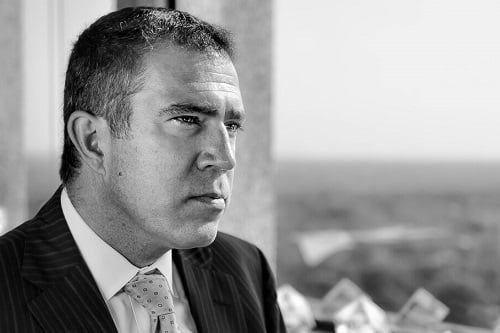Author of new book is a veteran advisor to HNW clients and believes he can help investors get better returns with new hypothesis

The investment industry needs to pour a bucket of cold water over itself and admit its failings over the past 20 years, according to an author and veteran advisor.
Niall Gannon is managing director of The Gannon Group in St Louis, US, and the scribe behind new book, Tailored Wealth Management: Exploring the Cause and Effect of Financial Success, which explores what he calls the three pillars of wealth – building it, managing it and deploying it.
The middle section addresses common themes like taxes, asset allocation and fees but also a theory that Gannon believes can help advisors get better results for their clients: the efficient valuation hypothesis.
He admits it’s not a title that will get the blood pumping, although he believes its effectiveness will - and in doing so tackle head-on common misconceptions within the industry.
He told WP: “What we’ve done is challenge some Nobel Prize winning beliefs that stock and security prices are random over time - we found strong evidence to refute that.
“There is another group that believes stock prices are mean reverting, meaning they go up over time as long as you wait long enough. We found strong evidence to refute that and the fact the markets have only returned 5% over the past 20 years means that these models were painfully wrong and that the trillions of dollars of underfunding and pension funds are a result of bad math and outdated theories.”
Gannon, whose firm manages more than a dozen families with a billion dollars of assets, thinks the industry has to come to terms with the fact a 20-year US treasury would have outperformed an index fund or a complex diversified portfolio. He can’t fathom why the efficient market hypothesis is still being used as a foundation.
He said: “I really hope we get a great readership [among advisors] because the ones that survive the next decade are going to have to show value and show that they understand the arithmetic of compounding. The rules have changed.
“In 1981, the PE of the market was 7x, today it’s 17x. Treasury bond yields were at 13%, today they are at 2-3%, so the math is very different. I hope advisors embrace this because I think they are going to have to differentiate themselves from the competition, who say you can just hit the play button on yesterday’s playbook and be successful.”
The book addresses wealth from a global perspective – how some people view themselves as wealthy earning as little as $2,000 a month, for example - and provides real cases of people who lived frugally so they have more choices later in life.
In focusing on managing wealth and then deploying it, Gannon draws on his own career and the lessons learnt.
He said: “Portfolio cash flow and spending portfolio cash flow keeps you from having to sell assets in periods of duress. We’ve had two 50% corrections in the past 20 years and it’s really important that portfolios not be dependent on selling assets to the pay the electric bill.
“[The other lesson] is to reject the constant bullish stance that Wall Street tends to always have that stocks will always outperform and they will always be compensated for risk. Investors are inherently risk adverse and they like CDs and bonds because they understand them within the capital structure. Managing risk is a huge part of the job.”



